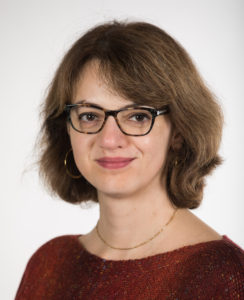Students, faculty, and staff alike are learning how to work and study from home due to the coronavirus outbreak.
Here are some tips (in no particular order) for managing your time at home and taking care of yourself in this stressful, unprecedented time.
1. Establish a routine, but break the day into segments. Make sure that you attend classes and complete assignments that are time-sensitive, but outside of class-time, find a rhythm that works for you. Try to wake up and get to bed at the same time when possible. Study for a set amount of time and then take a break to do something else. Use the “Schedule” template on Google Sheets or one of the many others available on Google Drive to plan your days out, or complete a daily journal if it’s helpful.
2. Get familiar with TCNJ’s tools for working remotely. Your instructors may use a variety of tools like Zoom, Google Meet, and Canvas modules, for example, and may share pre-recorded video lectures and/or hold live Q&A sessions. You can also access Virtual Labs through the TCNJ Today page. Faculty office hours and tutoring hours will be held online. It’s more important than ever to check your email so that you don’t miss important reminders or updates.
3. Make sure you eat enough and stay hydrated. Download a reminder app or set alarms on your phone to notify you that it’s time to eat or drink if you find it helpful to do so.
4. Sleep. Getting enough sleep is crucial to your mental and physical wellness, especially when you’ll be spending more time working alone.
5. Move your body. Though we’re all doing our best to practice safe social distancing and/or self-isolation, make sure you get some exercise. Get out for a short walk if you’re able to do so safely or find one of the many online workout or yoga routines that fitness instructors have been sharing. Youtube continues to be a great resource.
6. Find a quiet space (and time) where you can work. If you are living with others and/or sharing technology resources, you may not have the luxury of creating a separate space to work. Work out a routine with others living with you if you need to. If you have headphones, use them to block out other noise or listen to a calming playlist. If you do have your own laptop and room, create a work station for yourself that you can return to each day.
7. Make time to get in touch with friends and loved ones. Whether it’s through text, email, phone call, or video call, check in with your friends and loved ones. If you have the option to video call and see others’ faces.
8. Study with a group of peers (online). Not only does studying together reinforce the concepts you’re learning, but it will counter the loneliness you may feel now that you are not attending class on campus. Set up a study group once a week if you can to get in some much needed socializing. It will help you organize your week and give you something to look forward to.
There are plenty more tips to be found online, but if you see something important that’s been missed, please email cs@tcnj.edu
Check out these articles for these and other ideas. Most are geared towards employees who are working from home, but these tips are also applicable to students.
10 Tips for Working at Home Like a Pro:
https://weare.cisco.com/c/r/weare/amazing-stories/10-tips-for-working-at-home-lie-a-pro.html
How to Work From Home Now That Your Boss Doesn’t Want You Coming In:
https://www.nytimes.com/2020/03/12/smarter-living/wirecutter/work-from-home-if-boss-doesnt-want-you-coming-in.html
Working at Home? Self-Isolation Doesn’t Have to Be Lonely (Opinion):
https://www.nytimes.com/2020/03/16/opinion/coronavirus-self-isolation.html
How to Stick to a Schedule When You Work From Home
https://www.nytimes.com/2018/05/17/smarter-living/work-from-home-schedule.html
 The Computer Science Department welcomes Dr. Bikram Pal Kaur Turka to the Department!
The Computer Science Department welcomes Dr. Bikram Pal Kaur Turka to the Department!


